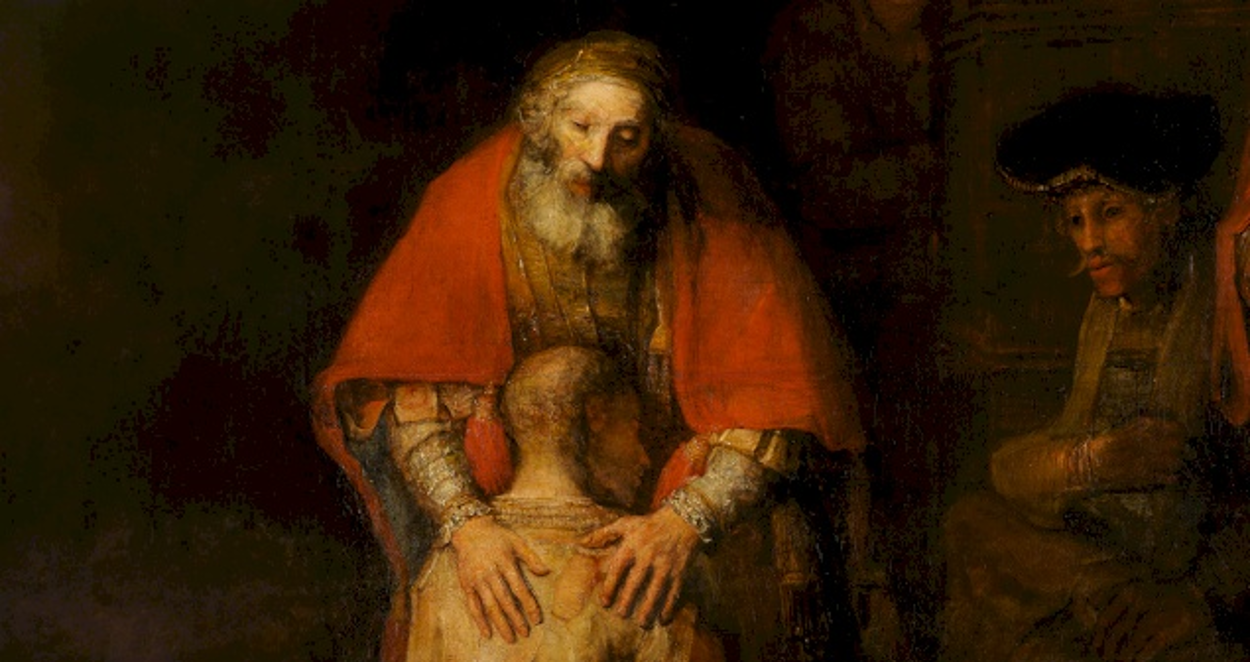His Beatitude Patriarch Cardinal Pierbattista Pizzaballa for the XXIV Sunday in Ordinary Time, Year A
Below you can find the Meditation of His Beatitude Patriarch Cardinal Pierbattista Pizzaballa, Latin Patriarch of Jerusalem, for the XXIV Sunday in Ordinary Time, Year A, Sunday 17 September 2023.
Mt 18:21-35
At the heart of the parable recounted in today's Gospel passage (Mt 18:21-35) is a great gesture of gratuitousness: a master has a servant who owes him an enormous sum of money; he realizes that this man will never be able to repay him back everything and, the moment the servant pleads with him, he frees him from the burden of this debt, and makes him live.
He does not beg for long, he does not bargain over the amount of the debt, he does not simply give him a discount, he does not postpone the day of repayment, but he forgives him everything. He does far more than the debtor would have reasonably dared to hope.
To settle such a large debt, there would have been no other way than to sell the servant, with his wife, children, and all that they owned (Matt 18:25): for the servant owed his life and owed his master everything.
The servant, on the other hand, does not ask that his debt be forgiven, but that he be given more time: he clearly does not dare to ask for such a great gift. But perhaps therein lies the problem, for the servant still has the illusion that he can pay back what he owes: " ‘Be patient with me, and I will pay you back in full." (Mt 18:26).
For the servant it is only a matter of time, of patience, but he believes himself capable of catching up, of solving the problem. He is confident that he can do it in his own strength.
He could have simply and humbly acknowledged that he cannot make it, that he is unable to pay, he could have trusted, believed and asked, but he does not. He wants to pay.
And there is a great deception here, because in a sense we are born with a debt, and the debt grows with each passing day: we are indebted to life, we are indebted to the love we have received, we are indebted to the many people who, different ways, have made us come to be who we are. We are indebted to a God who died for us: we cannot live thinking that we can return what we daily receive and that even God does not ask us to return. Instead, we should simply embrace our condition as insolvent debtors, without shame and without fear. That is, learning to live gratuitously, where what is given is priceless, because it is an expression of a love that asks for nothing.
The master, therefore, completely ignores the debt of the servant, because he cannot do anything else and does not know how to do anything else.
The text says that the master had compassion (Mt 18:27): and we can think that in this case compassion consists in recognizing that the servant will never be able to return what he owes, in welcoming the servant in his helplessness. The master feels in his heart the radical limitation of his servant, and accepts him as he is, keeps him in his house. He does not demand what the servant cannot give him. Which the servant, on the other hand, cannot accept and recognize for himself.
The parable could stop here, and we would have a portrait of the Father's face, a brushstroke of the life of the Kingdom: this is how God loves.
But the parable continues, and offers a glimpse into the human condition.
For as soon as he comes out of his encounter with his master, the parable seems to begin again as if the first part had not happened: the servant forgets what he has received from his master, and behaves ruthlessly with a fellow servant like himself, who owed him a derisory sum. What he failed to recognize for himself, he fails to accept for the other.
That man, in short, has never truly welcomed the gift, he has not made it his own, he has never felt saved, he does not feel the need to be grateful, and so he has not allowed his heart to be transformed.
He keeps the gift he has received to himself, and in this way he loses it.
Because God does not ask us to return anything that he gives us daily, but he does ask us to share it with one another, circulating the mercy and grace that he has given us…
This Meditation was originally published on the website of the Latin Patriarchate of Jerusalem. Please click here to read the full text.

